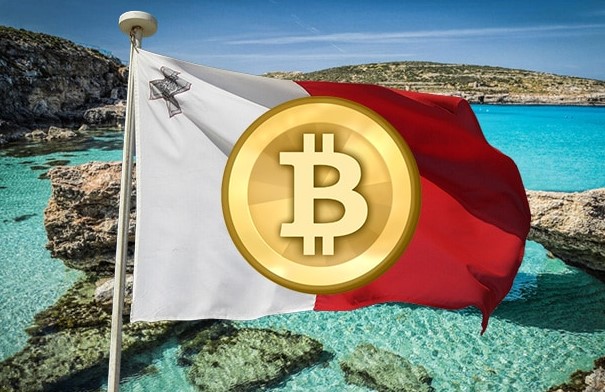
Crypto license obtainment in Malta
Malta was among the first countries in the world, in October 2018, to establish a comprehensive technology neutral regulatory framework for crypto exchanges, making the blockchain island the ideal location for your Malta crypto exchange.
Geographic location and economic stability, an educated and skilled English-speaking labour force, a modern and efficient legal and tax framework and competitive operational costs are just a few of the reasons why Malta should be your choice.
Active Blockchain & Crypto Industry
The Fintech Unit within the Malta Financial Services Authority was set up with the aim of creating a sector-specific point of reference for blockchain and crypto operators, thus offering direct access to operators who may wish to address several issues with the benefit of collective experience.

Who Can Apply for a Crypto (‘VFA’) Exchange Licence?
Subject to the fulfillment of certain Malta crypto exchange licence requirements, including the submission of a licence application with the Malta Financial Services Authority (‘MFSA‘), any legal person may issue virtual financial assets. As such, as per the Chapter 3 of the VFA Rulebook on VFA Service Providers, a person wishing to be licensed to operate a VFA Service, including a crypto exchange, must be a legal person established in Malta. Typically, an integral part of the registration of a whitepaper with the MFSA will be the incorporation of a Maltese company.
VIRTUAL FINANCIAL ASSETS (CRYPTO) LICENSE MALTA include 4 classes of license:
VFAA Class 1: Licence holders authorised to receive and transmit orders and/ or provide investment advice in relation to one or more virtual financial assets and/ or the placing of virtual financial assets. Class 1 Licence Holders are not authorised to hold or control clients’ assets or money.
VFAA Class 2: Licence holders authorised to provide any VFA service but not to operate a VFA exchange or deal for their own account. Class 2 Licence Holders may hold or control clients’ assets or money in conjunction with the provision of a VFA Service.
VFAA Class 3: Licence holders authorised to provide any VFA service but not to operate a VFA exchange. Class 3 Licence Holders may hold or control clients’ assets or money in conjunction with the provision of a VFA Service.
VFAA Class 4: Licence holders authorised to provide any VFA service. Class 4 Licence Holders may hold or control clients’ assets or money in conjunction with the provision of a VFA Service.
Malta Crypto Exchange Licence Process
Onboarding by Finance-Assistant
First you will be onboarded by the Firm. Following onboarding, our expert lawyers will advise and guide you through the registration process, assisting where necessary in the preparation of the business plan and company policies and procedures.
Appointment of VFA Agent & Key Functionaries
Preliminarily, an applicant should appoint a VFA Agent who shall be responsible for the submission of the licence application with the Malta Financial Services Authority (‘MFSA’) on behalf of the applicant. Other Key Functionaries should be engaged as early on in the process as possible. For instance, a licence application would not be deemed complete if it is not accompanied by a ‘Systems Audit Report’ drawn by a ‘Systems Auditor’. Thus, it is beneficial for an applicant to ensure that the applicable Key Functionaries are identified and engaged without undue delay.
Licence Application Phase 1 – Statement of Intent
The application process consists of three phases, (i) phase one being the preparatory phase, (ii) phase two being the pre-licensing phase and (iii) phase three being the post-licensing / pre-commencement of business phase. Phase 1 consists in the submission of a Statement of Intent in which the applicant notifies the MFSA of its intention to apply for a VFA Services Licence. The Statement of Intent should include a comprehensive description of the proposed structure; the VFA service or services for which licensing is being sought, identifying the persons proposed to hold key positions thereto; and a legal opinion that the proposed activity does not fall within the scope of traditional financial services legislation
Licence Application Phase 1 – Preliminary Meeting
Upon receipt of the Statement of Intent, the MFSA schedules a preliminary meeting with the applicant, following which the applicant shall have 60 days within which to submit a full application form with any supporting documentation as required.
Licence Application Phase 2 – In Principal Approval
Upon submission of a complete application, the MFSA will initiate a review of the application and the supporting documentation. Once it is satisfied with the information set out in the application, the MFSA will issue an ‘In Principle’ approval which would be valid for three months from the date of issue. During this period, the applicant will have to finalise any outstanding issues raised during the application process, finalise any pre-licensing conditions, and submit the original copies of the final application form together with all supporting documentation.
Application Licence Phase 3 – Post-Licensing
Upon satisfaction of any pre-licensing conditions, the MFSA will issue a VFA Services Licence. Licence holders may be required to satisfy, within set time frames, a number of post-licencing matters, as the MFSA may determine on a case by case basis. In any case, a Licence Holder must commence business within twelve months from the date of the licence’s issue.

Tax
Gains or profits realised from the operation of an exchange of services represents trading income. Thus, corporate tax at the rate of 35% would be payable to the relevant tax authorities by the licence holder on the profits generated from the provision of the services. It is important to note however, that a number of tax incentives may be applicable to your business model, thereby reducing the corporate tax due by the operator.
Key Requirements
Service carriers ought to accomplish the subsequent ahead of filing an application and getting a cryptocurrency trade license. Where an applicant is a common individual, a physical presence in Malta would be required. If the applicant is a legal entity, it may be constituted in Malta or overseas and meet the following:
- Comes from a recognized district and might open a department in Malta.
- There are no regulations on the nationality of the proprietors of the entity.
- Directors, certain individuals, senior administration, qualifying shareholders and useful owners required to take a fit and proper test.
- The applicant should employ a VFA agent which then documents an application with the MFSA and acts because the liaison between MFSA and the applicant.
- Applicant should take a Financial Instrument Test (FIT) over the VFA agent to make sure that the applicant provides a DLT asset that ensures that the VFA provider presented falls within the VFAA’s definition of a digital monetary tool.
- There must be at least 2 persons that hold the positions of directors or board of administrators.
- The applicant is further required to rent a money laundering reporting officer, a compliance officer and a hazard supervisor.
Please, contact our specialists for more information about fees and personal requirements for your project.
